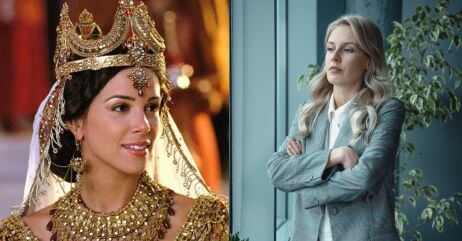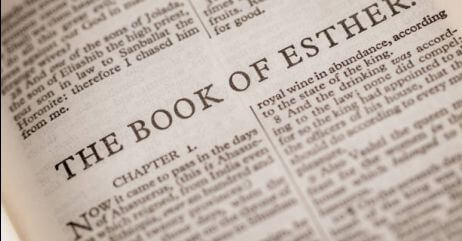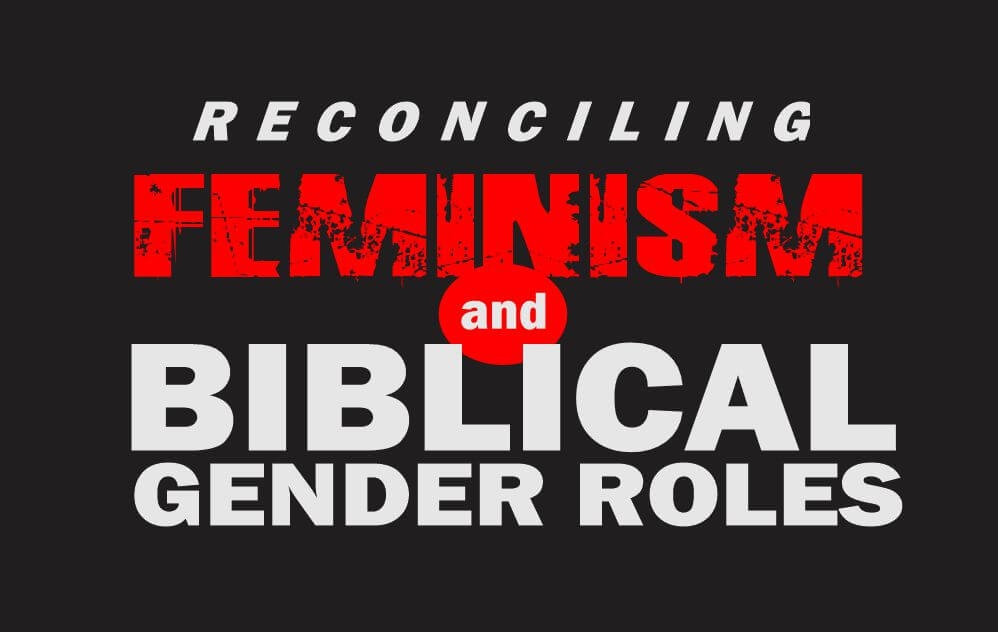Last updated on February 1st, 2025 at 06:40 pm
Reconciling feminism and biblical gender roles is possible, if great care and unbiased approach is taken to harness the good from both sides of the divide.
In today’s society, the pursuit of gender equality and women’s rights has been a central focus of the feminist movement.
At the same time, religious texts, such as the Bible, have long been seen as sources of guidance and authority on gender roles and expectations.
The intersection between feminism and biblical gender roles raises important questions and challenges, prompting us to explore the possibility of reconciling these two seemingly contrasting concepts.
It is undeniable that potential tensions and challenges exist when attempting to reconcile feminism and biblical gender roles.
The clash between these ideologies can lead to a complex and sometimes contentious discussion.
In this article, we will plunge deep into the topic of reconciling feminism and biblical gender roles.
Defining Feminism and Biblical Gender Roles

Feminism
Feminism can be defined as a social and political movement that advocates for gender equality, challenging and dismantling systems of oppression and discrimination based on gender.
At its core, feminism strives for equal rights, opportunities, and autonomy for all genders.
It seeks to address the historical and ongoing imbalances of power and promote social, economic, and political justice for women.
Key principles of feminism include recognizing and valuing the inherent worth and dignity of all individuals, challenging gender stereotypes, their effects and expectations, advocating for equal access to resources and opportunities, and fighting against systemic inequalities.
Biblical Gender Roles
Biblical gender roles refer to the traditional understanding and interpretation of gender roles and expectations derived from religious texts, particularly the Bible.
These roles typically assign distinct responsibilities and roles to men and women within the context of family, society, and religious practices.
Interpretations of biblical gender roles vary among different religious traditions and denominations.
Common interpretations often emphasize male leadership, authority, and provision, while attributing roles to women that prioritize nurturing, submission, and support.
However, it is important to note that interpretations of biblical gender roles are diverse, with some religious communities adopting more egalitarian perspectives that promote gender equality and reject rigid gender stereotypes.
Here is a dedicated article on biblical gender roles in society.
Cultural Factors that Shape Both Feminism and Biblical Gender Roles

Both feminism and biblical gender roles are shaped by historical contexts and cultural factors.
Feminism emerged as a response to centuries of gender inequality and the women’s suffrage movement in the late 19th and early 20th centuries.
It has evolved and expanded to address the intersectionality of gender with race, class, sexuality, and other social factors.
Biblical gender roles have been influenced by the historical context in which religious texts were written and interpreted, as well as cultural norms and practices prevalent at those times.
Societal changes, advancements in women’s rights, and evolving understandings of gender have also influenced the interpretation and application of biblical gender roles within different religious communities.
Understanding these historical and cultural factors is crucial for comprehending the complexities and challenges in reconciling feminism and biblical gender roles.
Related: Can Feminism and Femininity Ever be Reconciled?
Identifying Common Ground for Feminism and Biblical Gender Roles

Identifying areas of overlap between feminism and biblical teachings on gender equality and justice is essential for understanding the potential for reconciliation.
While interpretations may vary, there are instances where feminism and biblical principles align.
Both advocate for gender equality and challenge oppressive systems that perpetuate discrimination based on gender.
They share a common goal of dismantling patriarchal structures and promoting justice for all individuals, regardless of gender.
Exploring biblical narratives and teachings that uplift and empower women reveals another point of common ground.
Throughout the Bible, there are stories of courageous and influential women who played significant roles in their communities.
Examples include Deborah, who served as a prophetess and a judge, and Esther, who demonstrated bravery and leadership.
The New Testament also highlights women like Mary Magdalene and Priscilla, who were active in the early Christian community.
These narratives demonstrate that women can possess a sense of agency, wisdom, and spiritual leadership, contradicting the notion that women are inherently subordinate.
Shared values of respect, dignity, and the inherent worth of all individuals form a fundamental aspect of both feminism and biblical principles.
Feminism recognizes the value and dignity of all genders and asserts the right to be treated with respect.
Similarly, biblical teachings emphasize the inherent worth and dignity of every human being, as all individuals are believed to be created in the image of God.
Both perspectives advocate for fair treatment and equitable opportunities for all, challenging oppressive systems that devalue or diminish certain individuals based on their gender.
By identifying areas of overlap and shared values, it becomes clear that feminism and biblical teachings on gender equality and justice can find common ground.
Recognizing these commonalities opens the possibility for constructive dialogue and a nuanced understanding of how these perspectives can be reconciled to promote gender equality and social justice.
Navigating Differences and Challenges

Navigating the differences and challenges between feminism and traditional interpretations of biblical gender roles requires addressing tension and disagreement.
Feminism challenges traditional notions of gender roles and advocates for dismantling oppressive systems, while traditional interpretations of biblical gender roles often reinforce gendered expectations and hierarchical structures.
Tensions arise around issues such as women’s leadership, authority, and autonomy within religious spaces.
Understanding and acknowledging these areas of disagreement is essential for meaningful dialogue and progress.
Related: The Origins Of Gender Stereotypes Through The Ages
Cultural, historical, and contextual factors significantly influence the differences between feminism and traditional interpretations of biblical gender roles.
Cultural norms, societal expectations, and historical contexts shape how religious texts are interpreted and applied.
These factors can perpetuate or challenge gender inequality. Different religious traditions and denominations have diverse cultural and historical backgrounds that shape their perspectives on gender roles.
Exploring these influences helps to understand why certain interpretations exist and provides a basis for examining how they can be reevaluated in light of feminist principles.
Encouraging critical thinking and open dialogue is crucial for bridging the gap between feminism and traditional interpretations of biblical gender roles.
Engaging in respectful and thoughtful discussions allows for a deeper understanding of both perspectives and the potential for growth and transformation.
It is important to create spaces where individuals can express their views, challenge assumptions, and explore alternative interpretations.
Critical thinking prompts individuals to question traditional beliefs and consider alternative frameworks that prioritize gender equality and justice.
Reimagining Biblical Gender Roles within a Feminist Framework

Reimagining biblical gender roles within a feminist framework involves discussing progressive interpretations of biblical texts that promote gender equality and challenge traditional gender roles.
These interpretations emphasize passages that uplift women, challenge patriarchal structures, and advocate for equal rights and opportunities.
For example, proponents of feminist theology highlight passages like Galatians 3:28, which declares that “there is neither male nor female, for you are all one in Christ Jesus.”
By examining these alternative interpretations, it becomes possible to reinterpret biblical teachings in ways that align with feminist principles of equality and justice.
Exploring the concept of egalitarianism is crucial in understanding its compatibility with biblical teachings.
Egalitarianism asserts that all individuals, regardless of gender, have equal values, rights, and responsibilities.
It challenges the traditional hierarchy of gender roles and promotes shared authority and decision-making within relationships and communities.
Related: Balancing Biblical Gender Roles In Modern Society
Within a biblical framework, egalitarianism aligns with the teachings of equality, justice, and the inherent worth of all individuals.
It recognizes the importance of considering the cultural and historical context of biblical texts and reevaluating traditional interpretations through the lens of equality.
Highlighting examples of individuals and communities who have successfully reconciled feminism and biblical gender roles can provide inspiration and guidance.
These examples showcase how individuals integrate feminist principles into their religious beliefs and practices while remaining faithful to their understanding of biblical teachings.
They may involve inclusive leadership structures, equal participation of women in religious rituals and decision-making processes, and the rejection of harmful gender stereotypes.
By highlighting these success stories, it becomes evident that there are ways to reconcile feminism and biblical gender roles, and that it is possible to create spaces where individuals can embrace their religious identities and commitment to gender equality.
Here are a few notable examples:
1. Sojourners
Sojourners is a progressive Christian community and organization that promotes social justice and addresses issues of poverty, racism, and gender inequality.
They embrace feminist principles and advocate for gender equality within a biblical framework.
They emphasize the empowerment and leadership of women in both religious and societal contexts, challenging traditional interpretations of gender roles.
2. Rachel Held Evans
Rachel Held Evans, a prominent Christian writer, and speaker, advocated for a more inclusive and egalitarian understanding of biblical gender roles.
She challenged traditional interpretations and engaged in critical discussions on topics such as women’s leadership, domestic roles, and sexuality.
Evans encouraged Christians to embrace feminist principles while remaining rooted in their faith.
3. The Christian Church (Disciples of Christ)
The Christian Church (Disciples of Christ) is a denomination that has made significant strides in promoting gender equality.
They have ordained women as ministers, encouraged women’s leadership in various church positions, and actively addressed gender disparities within their communities.
They value feminist principles and work towards dismantling oppressive structures while remaining grounded in biblical teachings.
4. Keshet
Keshet is an organization within the Jewish community that promotes LGBTQ+ rights and inclusivity.
They advocate for a feminist approach that challenges traditional gender roles and seeks to create more inclusive spaces for all genders within Jewish religious life.
Keshet’s work showcases how feminist principles can be integrated within the context of religious traditions.
These examples demonstrate that individuals and communities have found ways to reconcile feminism and biblical gender roles.
They have embraced feminist principles while engaging in critical interpretations of religious texts and practices.
Their efforts have led to more inclusive and empowering spaces where gender equality is actively promoted and celebrated.
Empowering Women within Religious Spaces
Creating inclusive and empowering religious spaces for women is essential in reconciling feminism and biblical gender roles.
It acknowledges the value and contributions of women within religious communities and recognizes their right to equal participation and leadership.
Inclusive spaces affirm the dignity and worth of women, fostering a sense of belonging and empowerment.
By challenging traditional gender roles and embracing feminist principles, religious communities can create environments where women are valued, their voices are heard, and their spiritual gifts are celebrated.
Strategies for promoting women’s leadership and meaningful participation within religious communities are key in reconciling feminism and biblical gender roles.
This can involve providing opportunities for women to serve in leadership positions, including pastoral roles, on governing boards, and in decision-making processes.
It also requires actively addressing and dismantling barriers that hinder women’s participation, such as biases, stereotypes, and discriminatory practices.
Empowering women through education, mentorship, and training programs can help develop their skills and confidence, enabling them to actively contribute to their religious communities.
Supportive Communities Play a Significant Role in Reconciling Feminism and Biblical Gender Roles
When individuals within a religious community come together to challenge and reevaluate traditional interpretations of gender roles, it creates space for growth and transformation.
Supportive communities provide a platform for open dialogue, respectful discussions, and the sharing of diverse perspectives.
They offer a safe environment for women to express their concerns, aspirations, and ideas, and support them in their journey towards empowerment.
By fostering a sense of community and solidarity, these spaces enable the integration of feminist principles with biblical teachings, promoting a more inclusive and just understanding of gender roles within religious contexts.
Embracing Complexity and Personal Journey
Recognizing the complexities and individuality of reconciling feminism and biblical gender roles is crucial.
Each person’s journey and perspective are unique, shaped by personal experiences, culture, and religious upbringing.
Understanding the diverse interpretations of feminism and biblical teachings allows for nuanced exploration.
Approaching this process with humility and openness to learning from others is essential. Encouraging personal reflection and critical examination of beliefs helps reconcile feminism and biblical gender roles.
It involves questioning biases, and assumptions, and seeking a deeper understanding of underlying principles.
Respectful dialogue and embracing diverse thoughts foster empathy, and understanding, and create inclusive spaces for enriching conversations.
Frequently Asked Questions
What is the biblical perspective of feminism?
The biblical perspective on feminism varies among interpretations. Some argue for gender equality, emphasizing the inherent worth and value of both men and women, while others hold more traditional views on gender roles.
What does the Bible say about gender roles and equality?
The Bible presents various perspectives on gender roles. While it acknowledges distinct roles for men and women in certain contexts, it also emphasizes equality, highlighting the equal worth and value of both genders.
What does feminism say about gender roles?
Feminism encompasses diverse perspectives, but generally seeks to challenge traditional gender roles and advocate for gender equality. It aims to dismantle societal expectations and empower individuals to define their own roles and choices.
Were there feminists in the Bible?
The term “feminist” as understood today did not exist in biblical times. However, there were women in the Bible who challenged societal norms and advocated for justice and equality, demonstrating principles aligned with feminist ideals.
Conclusion
Reconciling feminism and biblical gender roles is a complex task that requires navigating tensions and finding common ground.
It involves acknowledging shared principles of respect and dignity, exploring progressive interpretations of biblical texts, and creating inclusive religious spaces.
Each person’s journey towards reconciliation will be unique, influenced by personal experiences and beliefs. It requires personal reflection, critical examination, and open dialogue.
Despite the challenges, this endeavor is necessary for a more inclusive and just society. By weaving together feminist principles and biblical teachings, we can promote equality and foster a more inclusive religious experience.
References:
- Reading the Bible as a Feminist
- Paul and Gender: A Review Article
- Feminist Interpretations of Certain Bible Passages
- https://www.ajol.info/index.php/ijcrh/article/view/259759/245255
- https://www.artsci.uc.edu/content/dam/refresh/artsandsciences-62/departments/judaic/docs/capstone-final.pdf
- https://eewc.com/christian-feminism-basics-reta/
Pyo Merez (PsyD) is a distinguished adolescent and adult psychologist at the forefront of mental health advocacy.
With expertise in cognitive and developmental psychology, focusing on social relationships, cultural contexts, and individual differences, Pyo has dedicated his career to empowering adolescents and adults.
As a sought-after speaker and panelist, Pyo shares invaluable insights on issues affecting young people, contributing to a deeper understanding of mental health and well-being in today's society.


